#Israël history
Explore tagged Tumblr posts
Text
The land of Israel has been populated by the Jewish people since 2000 BCE. Here's the timeline, in case you didn't realize that it is their homeland.
1900 BCE:
- Abraham chosen by G-d as the Father of the Jewish Nation.
1900 BCE:
- Isaac, Abraham's son, rules over Israel.
1850 BCE:
- Jacob, son of Issac, rules over Israel.
1400 BCE:
- Moses leads the people out of Egypt and back to Israel.
1010 BCE:
- King David unites the 12 tribes into one nation.
970 BCE:
- King Solomon, son of David, builds the first temple structure in Jerusalem
930 BCE:
- Israel is divided into two kingdoms, the Kingdom of Israel and the Kingdom of Judah.
722 BCE:
- Kingdom of Israel is conquered by Assyrians.
605 BCE:
- Kingdom of Judah is conquered by the Babylonians.
586 BCE:
- Solomon's Temple is destroyed by the Babylonians.
539 BCE:
- Persians conquer the Babylonians and take control of Israel.
538 BCE:
- The Jews return to Israel from exile.
520 BCE:
- The Temple is rebuilt.
432 BCE:
- The last group of Jews return from exile.
333 BCE:
- The Greeks conquer the Persian empire.
323 BCE:
- The Egyptian and Syrian empires take over Israel.
167 BC:
- Hasmoneans recapture Israel, and the Jews rule independently.
70 BCE:
- Romans conquer Israel.
70 CE:
- Romans destroy the temple.
After that, the Jewish people were captives to the Romans, Byzantines, Arabs, and Crusaders. Through all of these events, the Jewish people continued to live in Israel. There were more or fewer of them, depending on the centuries, but there was never a time when the Jews didn't live in the land.
They stayed, they built their communities, they raised their families, practiced their faith and they suffered at the hands of many outside rulers, but they always kept their faith. It is what sustains them, even now.
May 1948 CE:
- the UN established the State of Israel, the sovereign nation of the Jews.
Don't buy the Palestinian lies that they are entitled to the land. It simply is not true. HaShem will also provide a way for his chosen people to live in Israel, as He has for thousands of years.
Based off of a post by Raymond García of Julesburg, Colorado USA
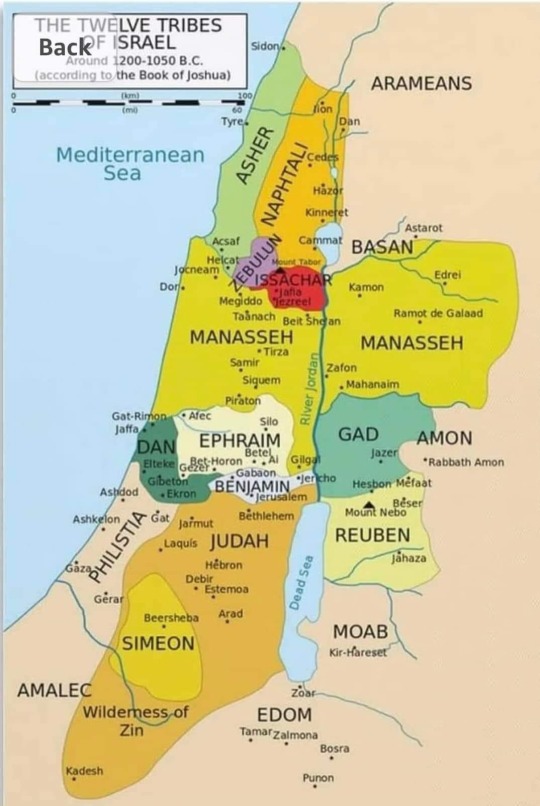
#israel#secular-jew#jewish#judaism#israeli#jerusalem#diaspora#secular jew#secularjew#islam#judea#Samaria#ancient history#history#Israeli history#Israël history#Palestine#Isaac#Jacob#Solomon#king solomon#king David#Esther#bible#torah#Abraham#hebron#kingdom of Judah#Judah#temple
40 notes
·
View notes
Text
Portrait Beauties of the 1920s

Randolph S. Hewton (Canadian, 1888-1960) • Miss Mary Macintosh • 1924 or earlier
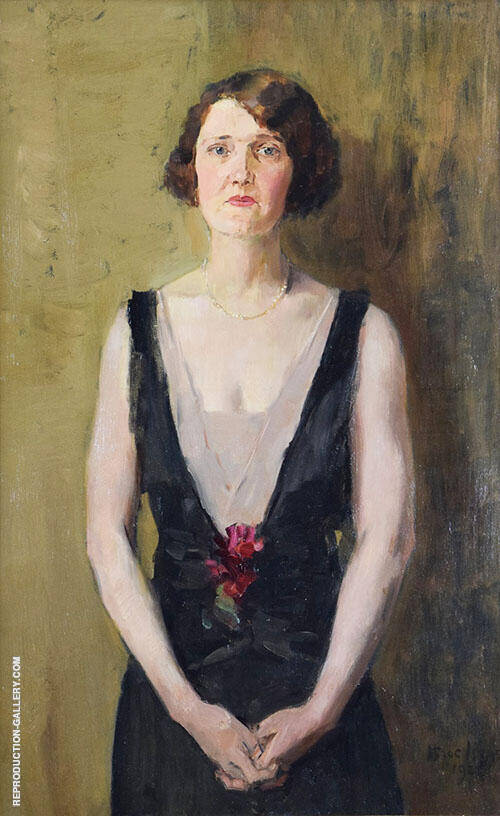
Isaac Israëls (Dutch, 1865-1934) • Portrait of Beulah Watson • 1928
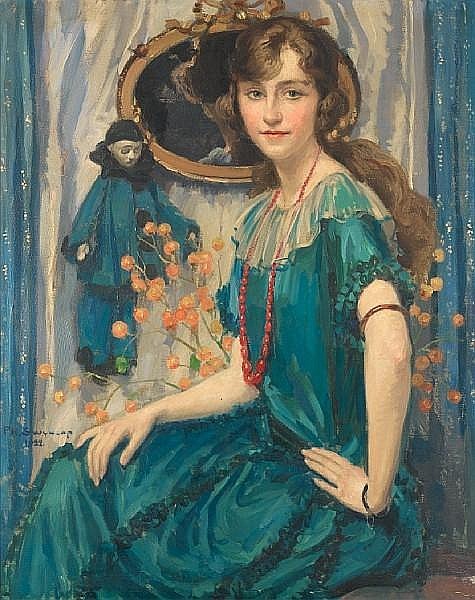
Philippe Swyncop (Belgian, 1878-1949) • Portrait of a Girl in Blue • 1922
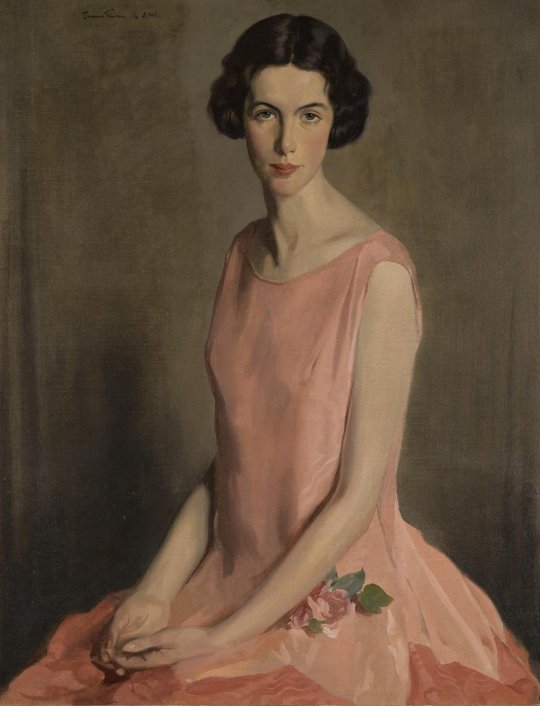
Herbert James Gunn (British, 1893 - 1964) • Portrait of Gwendoline Hillman • 1925

Gerald Festus Kelly (British, 1879–1972) • Edith Teresa Hulton, Lady Berwick • 1920s
#fashion history#art#painting#portrait#female artist#woman artist#female portrait#1920s fashion#women's fashion history#hilda rix nicholas#herbert gunn#gerald festus kelly#philippe swyncop#Isaac Israëls#the resplendent outfit art & fashion blog#art & fashion
170 notes
·
View notes
Text
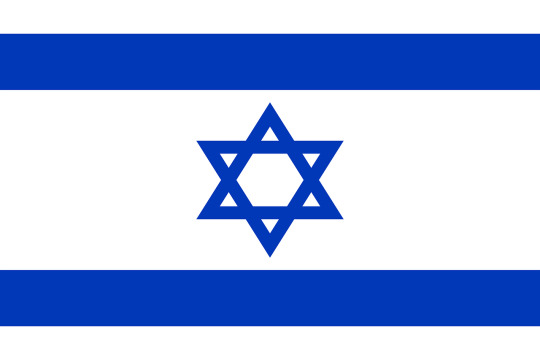

עם ישראל חי
(He/They/She) (gender is in your mind, go wild mate)
Attracted to women (yes I do understand the irony given my last statement)
Born in the year of your lord 2006
A proud Israeli Jewish Zionist! glory to the lions of Zion!
Asks are open and welcome! please ask a lot! I will block and report hate mail so don't even try
Translating songs as a hobby, go to the david-translation tag to see them!
Color coding explained:
(red brackets for annotations)
orange for phrase that needs explaining - will be explained in red brackets.
Green for words in a third foreign language, such as Arabic, French, Portuguese etc.
You are more than welcome to suggest songs in the askbox
A DND player for since 2014, a GM since 2017
Fandoms: Percy Jackson, arcane, stranger things, ender's sagas
Loves politics, come and argue anytime! as long as you're civil
Programmed on the FRC team BumbleB #3339! Now an alum :(
My blog is overrun because of the war, but when it's calmer, I like to blog about art, DND, memes, and general conversations
this is the second time I make this blog, I accidentally deleted it a while ago
All NSFW things I reblog will be tagged as such
Thank you and welcome!
#טאמבלר ישראלי#ישראלבלר#עם ישראל חי#ישראלים#ישראל#ישראבלר#ישרבלר#i stand with israel#pro israel#israel news#boycott israel#israel#israeli#israël#israhell#jewish history#jewblr#jewish#טמבלר ישראלי#jews#jewish stuff#jewish tumblr#jewish culture#jewish holidays#jewish joy#queer jews#jew#judaism#jumblr
166 notes
·
View notes
Text
1963: "White only" = Jim Crow Segregation
1993: "Afrikaner only" = apartheid
2023: "Israeli only" = its complicated
#gaza strip#israel#palestine#israhell#from the river to the sea palestine will be free#palesources#news on gaza#gaza genocide#gazaunderfire#stand with gaza#free gaza#gaza#gazaunderattack#save gaza#israeli history#i stand with israel#israël
205 notes
·
View notes
Text
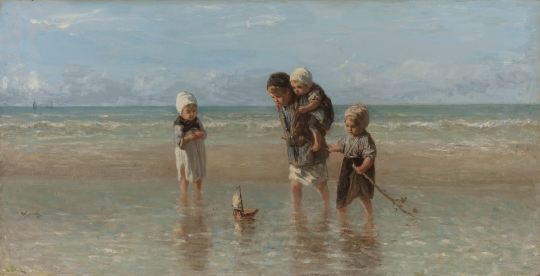
#art#painting#oil painting#handmade#artwork#oil on canvas#art blog#reproduction#classical art#art history#Jozef Israëls#children
13 notes
·
View notes
Text
There's a barrage of takes today and some of them are well informed and knowledgeable about that area. There's a lot of junk but there are people who can enlighten you on the history of both sets of refugees, the ancient feuds, the recent agressions, the horrific end games of the political parties currently in power...
I'd like to offer a take I haven't seen at all today:
What if this wasn't about jews and muslims at all? Not to those affected of course (there's so much going on it'd take hours to unpack!), but to the ones who've made and will be making decisions about how to proceed. What if religious and racial differences were just a pretext for other countries to test tactics, weapons, surveillance, propaganda in a handy dandy sandbox? What if it was about warmongers playing with an ancestral blood feud for money and power?
This summer many folks discovered that the atomic bomb wasn't about Japan or American troops at all. Maybe it's time to look at our own arms manufacturers and policy makers: did any of them want peace in the middle east or just temporary peace to observe and test "peacekeeping"?
What if taking sides was obscuring the other players? Israël and Palestine: not even the main characters, both dependent on their usefulness to other countries.
I'm not saying that what people are pointing out has happened since the 1940s aren't very important issues.
I will say that all *you*, random person on the internet, can do is teach the people around you to recognise antisemitism and islamophobia and build longterm protection under the law for them, if only so that both Palestinians and Israelis have safe countries to immigrate to and rebuild community in if they want to flee being players in extremist and meddler wargames.
Protesting will probably get us about as far as we did protesting the war in Iraq. We the people don't get a say, the arms dealers and DoD will go ahead with whatever they find most lucrative from a business sense and a political one. The best thing we can do is make sure laws are passed locally that protect the jews and muslims of our communities or incoming immigrants/refugees in the longterm.
#saf#Politics#palestine#Israel#I'm not clarifying my positions on unnuanced issues. This isn't as simple as post y2k events and messaging#My position is human rights for all humans. End of.
22 notes
·
View notes
Text
Un historien du génocide face à Israël - Omer Bartov
2 notes
·
View notes
Text
"L'enquête de l'ONU ne pourra malheureusement pas éradiquer le négationnisme des crimes qu'elle a documentés, et ne pourra sortir du déni ceux du camp progressiste qui y voient un refuge. Les viols n'ont pas eu lieu, diront certains, ou pas tous, ou en tout cas moins que l'autre camp; d'autres acceptent les faits mais font preuve d'un mépris glaçant à l'égard des victimes israéliennes, comme si reconnaître leur statut rendrait la mort d'innombrables Palestiniens moins épouvantable. Il est toujours possible, même après ce rapport, de nier ce qui est maintenant une évidence; mais cela n'effacera pas ce que les victimes ont enduré dans leurs derniers instants, et cela ne libérera pas la Palestine."
Violence against women is a weapon of war. It has been used for centuries, by forces of all ethnicities, religions, and origins as a way to terrorise, humiliate, and assert dominance over its victims. In recent History, its use has been documented anywhere from American soldiers in Vietnam, to Russian soldiers in Ukraine, to now, Palestinian fighters in Israel. There is and surely will be additional evidence of it being used by Israeli soldiers against Palestinian women.
The problem isn't the point of origin, the problem is our understanding of the phenomenon. We think of sex as an expression of desire - here, an expression of male desire. We think of rape as the expression of a pulsion that men cannot properly "control". Back in the day, I used to have comments on castles saying: "I don't believe Amycus would do this, he'd be disgusted by Ginny, she's a blood traitor." And, frankly, I will die on this hill: do you really think Russian soldiers were so "attracted" to Ukrainian women they couldn't resist? Do you really think that the Palestinian men who raped Israeli women, as featured in this report, were not repulsed by them?
Sex, in this context, isn't desire, it's a weapon. It is control, coercion, humiliation. Of both the women who fall victim, and by proxy, of the men who love them. Recognising that doesn't mean we shouldn't support Palestine - the crimes committed by Israel are pretty obvious at this stage - it just means that this is a war that is sadly being fought like every other war in History, and isn't that unique. Because just like catcalling isn't done to attract women (it's done to express control over public spaces), rape isn't the expression of attraction, it's the expression of power and possession. And, there is no way to prevent this from happening until we consider violence against women as the weapon it is. Until the perpetrators (of all sides) are tried for war crimes. Until we treat this weapon as seriously as other biological or mass-destruction weapons, for the sheer extent of irreversible damage it causes.
And, as the quote says, ignoring this won't free Palestine.
6 notes
·
View notes
Text
Remember those women abused by hamas who op like those see as not having it bad. F u asswipe. You guys cry only for Palestinians not having things for period while women are held captive and abused or were released and have to live with abuse.
This women’s history month, remember those in Gaza who don’t have feminine hygiene products for their periods. Remember the pregnant mothers who got ran over by IDF tanks. Remember the women who have been killed and displaced, & IDF soldiers humiliate them further by brandishing their undergarments in posts and pictures.
Remember the women in Palestine this Women’s History Month.
5K notes
·
View notes
Text
Quand l’État refoule son passé
À propos de : Omer Bartov, Genocide, the Holocaust, and Israël Palestine. First Person History in Times of Crisis, Bloomsbury Academic Écrit par Jean-Fabien Spitz L’histoire en première personne Les historiens de la Shoah ont souvent écrit l’histoire du génocide commis par les Nazis à l’encontre des juifs d’Europe en se fondant sur des sources officielles et en insistant sur ce qui, à leurs…

View On WordPress
0 notes
Text
The History of Gaza: the Key to War and Peace in the Middle East | Maison Française
...Gaza, a History reveals that Gaza has been since Antiquity a prosperous oasis and a commercial hub that served as a springboard for any Middle Eastern empire to conquer Egypt and for any Nile Valley-based power to attack the Levant. This imperial pendulum went back and forth for centuries until the British Army, led by Allenby, entered Gaza in 1917, on the very day that the Balfour Declaration was made public in London. But worse was to come in 1948, with Gaza turning into the enclave of a geographical “strip,” and one quarter of the Arab population of Palestine now crowded on only 1% of their historical homeland. Since then, Israel has waged no less than fifteen wars on Gaza, all won militarily, but lost politically, Filiu argues, except for the first Intifada that paved the way for the first Israeli-Palestinian peace process. Any attempt to revive such a peace process should start from Gaza, which remains the key to war and peace in the Middle East.
Jean-Pierre Filiu is professor of Middle East Studies at Sciences Po, Paris. A historian and an Arabist, he has also held visiting professorships at the Universities of Columbia and Georgetown. Hurst and Oxford University Press published his Arab Revolution in 2011, Gaza, a History in 2014 (MEMO Book Award) and From Deep State to Islamic State in 2015, after University of California Press had published in 2011 his award-winning Apocalypse in Islam. He recently published The Middle East, a Political History, from 395 to the Present with Polity, and Comment la Palestine fut perdu et pourquoi Israël n’a pas gagné: Histoire d’un conflit (XIX-XXIe siècle) with Seuil. Filiu’s books have been translated in more than fifteen languages, including Arabic and Turkish.
Rashid Khalidi is Edward Said Professor of Modern Arab Studies at Columbia University. He is editor of the Journal of Palestine Studies, and was President of the Middle East Studies Association, and an advisor to the Palestinian delegation to the Madrid and Washington Arab-Israeli peace negotiations from October 1991 until June 1993. He is author of: The Hundred Years' War on Palestine: A History of Settler Colonialism and Resistance, 1917- 2017 (2020); Brokers of Deceit: How the U.S. has Undermined Peace in the Middle East (2013); Sowing Crisis: American Dominance and the Cold War in the Middle East (2009); The Iron Cage: The Story of the Palestinian Struggle for Statehood (2006); Resurrecting Empire: Western Footprints and America's Perilous Path in the Middle East (2004); Palestinian Identity: The Construction of Modern National Consciousness (1996); Under Siege: PLO Decision-Making During the 1982 War (1986); British Policy Towards Syria and Palestine, 1906-1914 (1980); and co-editor of Palestine and the Gulf (1982) and The Origins of Arab Nationalism (1991), and The Other Jerusalem: Rethinking the History of the Sacred City (2020).

0 notes
Video
youtube
(via (36) Former MI6 boss on Trump, Putin and a 'new era' for international relations - YouTube)
it might be the opposite🤫 most📺 surprises are 🌎when you mistake the looser 🌎🏦🗽for the winner 🪐☯☸and soon find out that history 🤫is written 🧲by the winer that everyone mistaken for the 🤔loser 70 🕎AD Israël ✝ROME 410 AD is one example ☯☸ 1913🏦🗽 FED🌎 DEBT 🍿🌭🍟🍔CIVILIZATION 🥀latest casualty 🧪
0 notes
Text
(Jewish History)
Baasha, 900-877 B.C., moved the capital to Tirzah and fought with King Asa of Judah over the border between them. Asa fortified Mizpah, a Judean border town, to defend against Baasha.
#Israël #Israeli #israel #History #historymatters
0 notes
Text
RIVALEN IN HET BELOOFDE LAND, EEN VUISTDIK GESCHIEDENISBOEK
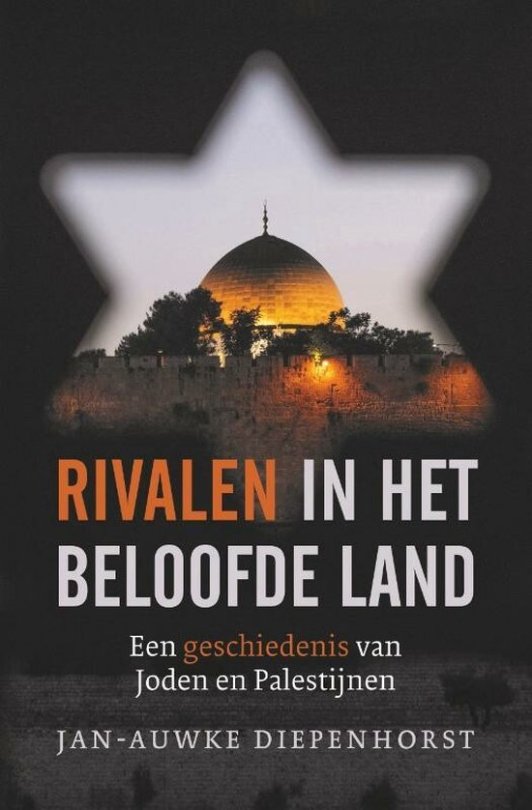
Wat is dat toch met die Joden en Palestijnen, dat ze elkaar maar niet kunnen uitstaan. De een en de ander niet kunnen dulden op elkaars en eigen grondgebied. Die ongeschreven vete duurt eigenlijk al zolang de landstreek daar bewoond is. Want waren de Israëlieten naar Egypte getrokken omdat er hongersnood heerste in wat eens het Beloofde Land zou zijn? We schrijven een periode ver voor de jaartelling, in de tijd na de aartsvaders op het moment dat Jozef een hoge post had bij de farao. Maar het volk werd onderdrukt in het buurland en besloot terug te keren naar huis en haard, naar daar waar de grootouders geboren waren. Echter verbleven ze zolang elders dat 'hun' grondgebied door anderen werd bewoond inmiddels. Met harde hand en onder Gods leiding werd stad en streek weer ingenomen. Eigenlijk vergelijkbaar met wat er in de 20e eeuw speelde.
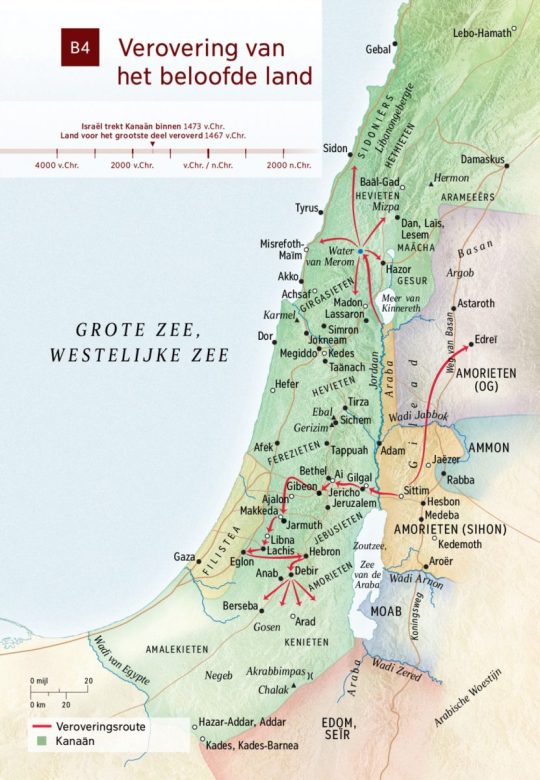
De ruzie en onvrede tussen de volken in het stroomgebied van de Jordaan heeft wortels. Maar waar deze geaard zijn is niet eenvoudig te doorgronden. De wrok en haat schijnt van alle tijden en de oorsprong voert in eeuwen al ver terug. Het is te gemakkelijk te zeggen dat de Joden in Israël thuis horen omdat de Bijbel dat voorschrijft. En dat zij om die reden elk ander volk dat het land heeft ingenomen mogen uitmoorden en verdrijven. Historicus Jan-Auwke Diepenhorst heeft als specialist op het terrein van het Midden-Oosten en de Koude Oorlog een grote belangstelling voor het thema Israël en Palestina. Hij schreef over de kwestie een boek dat het formaat heeft van een bijbel. Voor zijn onderzoek naar het hoe en waarom is hij diep in de materie gedoken. Hij spit het beloofde land om vanaf de oudste oudheid tot het recente heden, uit de greppels en groeven haalt hij de redenen voor de eeuwige strijd naar boven. Hoewel Diepenhorst het conflict van beide kanten bekijkt om begrip van en voor de partijen te bepleiten, komt hij niet met een oplossing. In die positie zit hij niet, maar wel kan hij aangeven hoe het zover heeft kunnen komen.
Antisemitisme is van alle tijden. Op diverse plekken wereldwijd zijn Joden door de eeuwen heen onderdrukt. Hitler blijkt niet de enige tiran die zijn haat omzette in vernietiging. Hij zal geleerd hebben van de geschiedenis en probeerde het werk dat voor hem anderen hadden aangevangen af te maken. De Jood was altijd ondergeschikt en werd onderdrukt, waarvoor de verklaring dat deze Jezus aan het kruis hebben genageld een plausibele is. Vanuit de oudheid tot in het heden voert Diepenhorst een achttal figuren ten tonele die de hoofdrolspelers in de onenigheid zijn. Spelers die in beide kampen hun sporen hebben gezet. Met hun ideeën en handelingen hebben bijgedragen aan heersende onrust en een mogelijke vrede in het gebied.

Door het boek probeert de schrijver mij het verleden te laten begrijpen om zo beter over het heden en de toekomst te kunnen spreken. “Voor een uiteindelijke oplossing van het conflict gaat het niet om het vaststellen van de historische waarheid en wie gelijk heeft”, houdt hij mij voor. “Maar om begrip voor elkaars levensverhalen en situaties en om te beseffen hoe diep het trauma van de Holocaust zit bij Israëli’s en hoe dit nog steeds meespeelt bij allerlei beslissingen. Maar tevens hoe diep het trauma van de Nakba, de catastrofe, de vlucht van ruim 700.000 Palestijnen bij het ontstaan van Israël, is bij Palestijnen en hoe dit van invloed blijft op hun besluiten en acties.” Diepenhorst beseft dat de Nakba niet te vergelijken is met de Holocaust. Maar beide partijen zijn getraumatiseerd, wat hun handelingen over en weer verklaren.
Echter vindt het probleem de oorsprong op een veel eerder tijdstip dan die van de 20e eeuw. Het verhaal begint bij de Oudheid en de verspreiding van de Joden over de wereld. Vanuit een biografisch perspectief van de hoofdpersonen wordt de geschiedenis van het conflict door Diepenhorst beschreven. En net als ieder treffen en elke wrijving waar ook ter wereld een historie heeft, voor de rivalen in het beloofde land is dat al niet anders. Alleen heeft dit verhaal bijzondere en daardoor scherpe kantjes. Speelt er meer dan enkel landjepik of opgestaan plaats vergaan. Spelen er de trauma’s mee. Maar ook de nauwelijks geheelde wonden van de Joden uit een ver verleden. De eeuwenlange wereldse Jodenhaat snijdt diep in hun vlees en daardoor is het volk weerbaar en strijdbaar geworden. Met de Bijbel in de hand kan gesteld worden dat de jood Saulus, die tot christen Paulus wordt, niet alleen medestichter is van het christendom, maar ook aanzet geeft tot een christelijk geïnspireerd antisemitisme. En zo openen mij de ogen op meerdere plekken in het boek en krijg ik een heldere kijk op het hoe en hoezo, het waarom en waardoor.
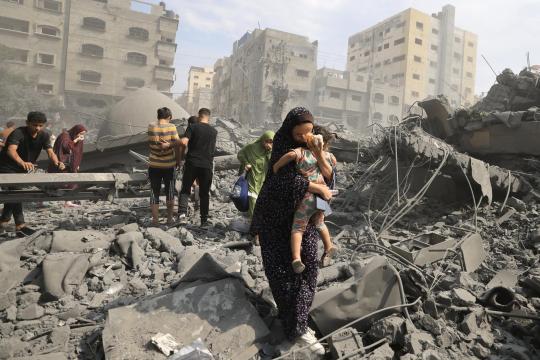
De Joodse diaspora is zo oud als de weg naar Rome. Maar juist in de 20e eeuw wil men daar een einde aan maken door een eigen plek voor het volk te creëren, een nieuw thuis. Daar hebben vooraanstaande figuren zich hard voor gemaakt. En zelfs werd hen een plek toegewezen in Oeganda, tevens een kolonie van Engeland evenals zij Palestina als wingewest zich hadden toegeëigend. In verschillende landen werden Joden achtergesteld en onderdrukt, maar de Tweede Wereldoorlog vormt hierin een triest hoogtepunt. Met de Holocaust is geprobeerd het volk uit te roeien. Daarom vonden de geallieerden het daarna niet meer dan logisch dat de Joden konden terugkeren naar het gebied waar ze volgens Bijbelse overlevering thuis horen, het Beloofde land. Probleem was dat dit land inmiddels terecht door anderen in gebruik was genomen. Het was niet braak blijven liggen wachten tot de oorspronkelijke bewoners er zouden terugkeren. Dus moest er voor de Palestijnen een nieuw land komen. Een probleem met twee verliezers was geschapen, want tot nu toe is uit de strijd nog geen winnaar opgestaan.

Het is niet aan mij om op deze plek de geschiedenis van Joden en Palestijnen in het kort nog eens te herhalen. Jan-Auwke Diepenhorst heeft daarvoor al te lang de boeken doorvorst en de geschriften nagespeurd. Zijn verhaal geeft een compleet beeld van het vraagstuk. Het geeft niet de uitkomst, want nog telkens duurt de strijd voort en nog steeds is er geen voor beide partijen leefbare oplossing. De rivalen blijven tot de tanden toe bewapend tegenover elkaar staan en het blijft een smet op het blazoen van de wereldvrede. Het boek “Rivalen in het beloofde land” is een aanrader voor de lezer die meer wil weten over verleden, heden en toekomst van dit conflict. En zeker voor lezers die willen leren van dat verleden om begrip te hebben voor het heden en verlangend uitzien naar een vredige toekomst.
Diepenhorst kiest geen partij, is niet voor of tegen de een dan de ander. Na het lezen van de verhalen hoef ik ook geen kant te kiezen, maar kan ik meer begrip opbrengen voor de manier waarop het zover is gekomen en waarom het nog langer voortduurt. Zoals er in geen enkele oorlog winnaars zijn en alleen de verliezers de wonden likken, zo is dat in de strijd om het beloofde land tevens het geval. Het land is beloofd, maar niemand geloofd daar nog in. De vuistdikke uitgave die daarover vertelt telt 528 uiterst interessante pagina’s. Een leerzame aanvulling op de bibliotheek met historisch verantwoorde en geschiedenis verdedigbare boeken.
Rivalen in het beloofde land. Een geschiedenis van Joden en Palestijnen. Jan-Auwke Diepenhorst. Uitgeverij Omniboek, 2023.
#beloofde land#jan-auwke diepenhorst#omniboek#geschiedenis#israël#palestina#joden#palestijnen#boekbespreking#]
0 notes
Text
The Jewish settlers were trained in eradicating the Palestinian/Bedouin population of Mandatory Palestina by the British in the early 1920's, a population that among others comprised followers of the Torah. Thousands of Palestinian we're forcibly displaced by Jewish settlers. Brittain supported this in order to creatie a Jewish cliënt state to counter a potential Pan Arabic state, but more importantly to impede French attempts in Syria and Egypt.
In this period 4 million Jews left Europe due to pogroms (especially Russia). Only 1% of those settled in Mandatory Palestina. With the rise of the NSDAP in Germany, Zionists made an agreement with the Nazi leadership that wealthy German Jews were tot move to Mandatory Palestina and maintain their wealth. This wealth was used to further demolish and burn Palestinian /Bedouin villagers to make place for Jewish settlements. A strategy that is still in use, even today in the Naqaab dessert, we're all inhabitants have Israeli citizenship, still Palestinian/Bedouin population are forcibly displaced to make room for Jewish settlements. This tactic is genocidal (and thus criminal) but a core tactic of the Zionist occupation, used for over 1 century by now.
From the get go of the Settler project it is stated that in order for a Jewish state to be born, all the indigenous population has to be removed. This is a central tenet of Zionist ideology. It is not a return of a People lost. It is and occupation of the People present. And the people present have a right to resist their oppressors. Israel is the violent oppressor. Israël started the war. Israel refused to participatie in peace talks on good faith. It has never wanted peace. Peace would mean the Palestinian population has to be recognised, and that is counter to the Zionist ideology of a Jewish state.
Learn your history, instead of mouthing the propaganda you were thought in school.
And by the way, the Palestinian /Bedouin population was 400000 when they first Jews arrived. Where did those people go, prior to 1970?
A BRIEF LESSON IN COLONIALISM
SINCE IT IS SUDDENLY A TOPIC OF GREAT INTEREST.
BRITISH COLONIALISM;

SPANISH COLONIALISM;

PORTUGUESE COLONIALISM;
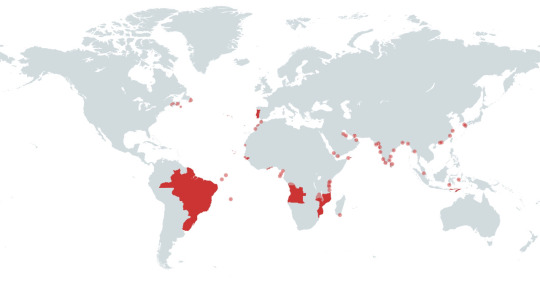
ITALIAN COLONIALISM;

FRENCH COLONIALISM;

JAPANESE COLONIALISM;
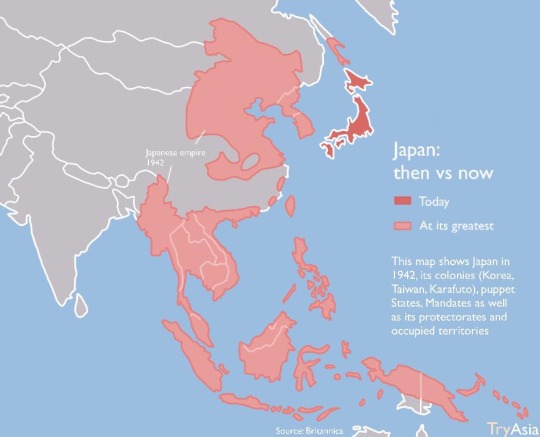
ARABIC COLONIALISM;
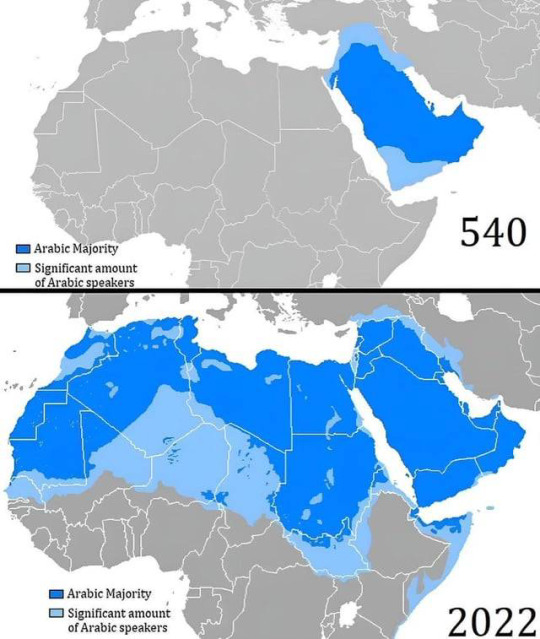
AMERICAN COLONIALISM;

ISRAEL;
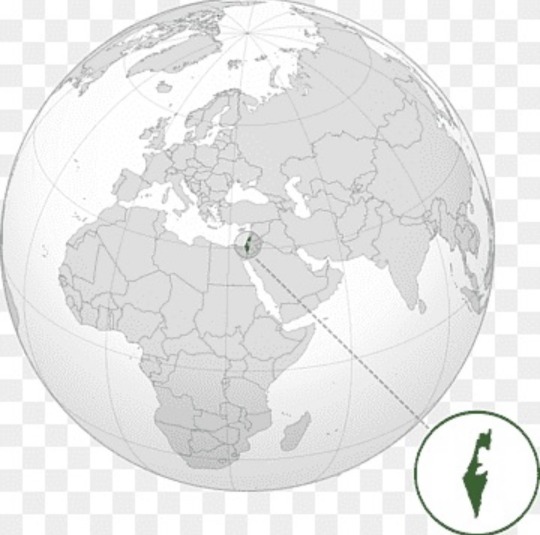

WOW. SUCH COLONY. VERY SETTLE.
WORDS HAVE MEANINGS. CAN WE STOP PRETENDING THIS WAS EVER ABOUT COLONIALISM?
THANK YOU FOR COMING TO MY TED TALK.
2K notes
·
View notes
Text
1 note
·
View note